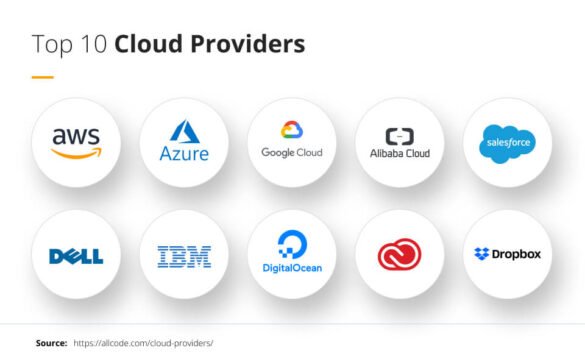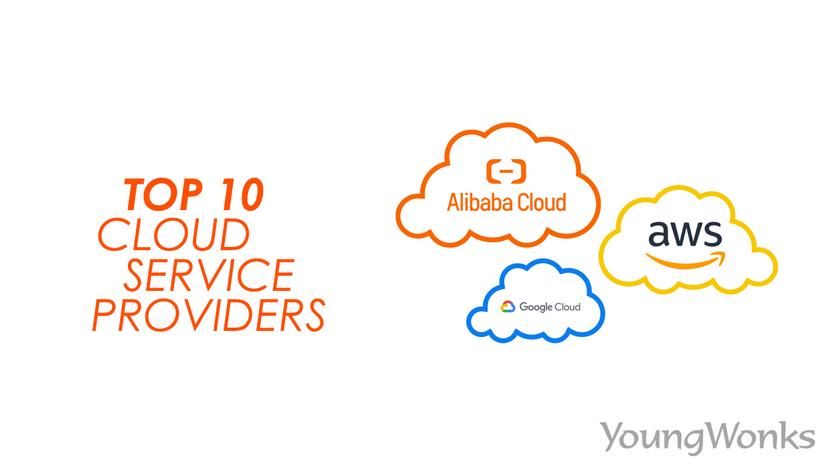
Introduction
Overview of Cloud Services
Cloud services have revolutionized the way businesses and individuals manage their data and applications. Instead of relying solely on physical hardware, users can now access services over the internet, allowing for greater flexibility and scalability. From storage solutions and computing power to platform development and software as a service (SaaS), the cloud offers a variety of services tailored to different needs.
Key benefits include:
- Cost Efficiency: Save on hardware and maintenance expenses.
- Scalability: Easily scale resources up or down based on demand.
- Accessibility: Access data and applications from anywhere with an internet connection.
Cloud platforms have become essential for businesses looking to innovate and stay competitive.
Importance of Choosing the Right Provider
Selecting the right cloud service provider is crucial for optimizing performance and ensuring seamless operations. With various providers competing in the market, choices can often feel overwhelming. A poor selection can lead to challenges such as increased costs, security vulnerabilities, and service downtimes.
Consider these factors when evaluating providers:
- Service Diversity: Ensure they offer a range of services that meet your specific needs.
- Security Features: Look for robust security measures to protect your data.
- Customer Support: Responsive and knowledgeable support can make all the difference.
By carefully evaluating these aspects, businesses can make informed decisions that contribute positively to their growth and success, ensuring they choose the right partner in their cloud journey.
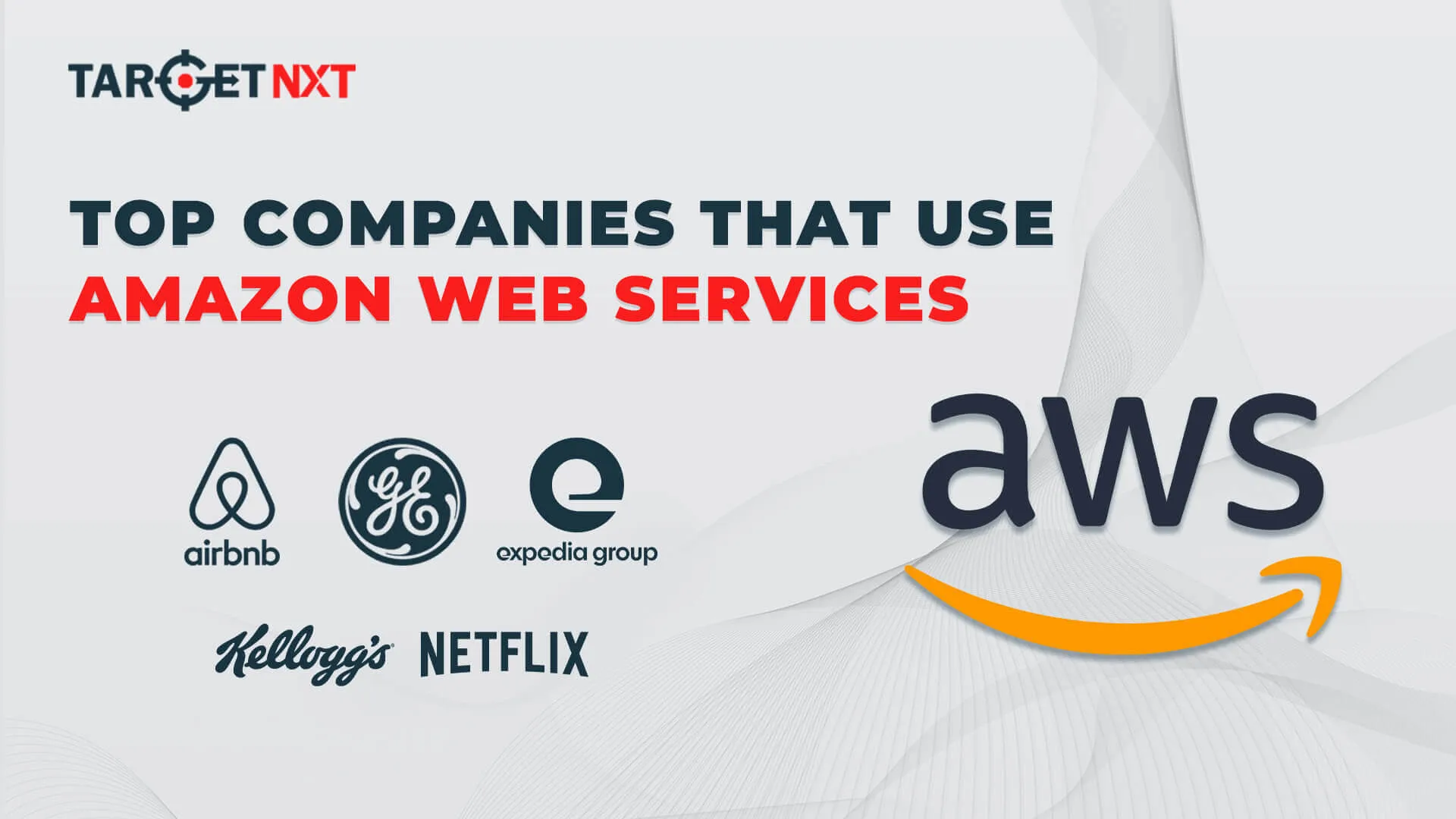
Amazon Web Services (AWS)
History and Background
Amazon Web Services, or AWS, began its journey in 2006, emerging from Amazon’s own need for reliable and scalable infrastructure to support its online retail operations. The idea was simple: if Amazon could create a robust cloud platform to enhance its services, why not share that infrastructure with others? Over the years, AWS has expanded its offerings significantly, establishing itself as a leader in the cloud services market.
Notably, AWS was one of the first companies to offer cloud computing, paving the way for numerous businesses to leverage the cloud. Today, it serves millions of customers worldwide, including startups, enterprises, and government agencies.
Services Offered
AWS provides a comprehensive array of cloud services, catering to virtually every aspect of technology needs. Here’s a glimpse of what it offers:
- Compute Services: Amazon EC2 (Elastic Compute Cloud) allows users to run virtual servers in the cloud.
- Storage Solutions: S3 (Simple Storage Service) is a highly scalable and durable storage option.
- Database Services: Amazon RDS (Relational Database Service) supports various database engines.
- Machine Learning: AWS offers machine learning services like SageMaker for building predictive models.
With over 200 fully featured services, AWS empowers businesses to build innovative applications and scale rapidly without the burden of physical infrastructure.
Pricing Models
One of the standout features of AWS is its flexible pricing models, which allow users to pay only for the resources they consume.
- Pay-as-You-Go: Users are charged based on actual usage, making it easy to manage costs.
- Reserved Instances: For long-term projects, users can reserve capacity at a discounted rate.
- Spot Instances: This allows users to purchase unused capacity at lower prices—ideal for flexible workloads.
By offering diverse pricing options, AWS accommodates various budgeting needs, effectively supporting users in optimizing their cloud spending. Overall, AWS stands out as a formidable player in the cloud landscape, providing tools that truly empower businesses to soar to new heights.
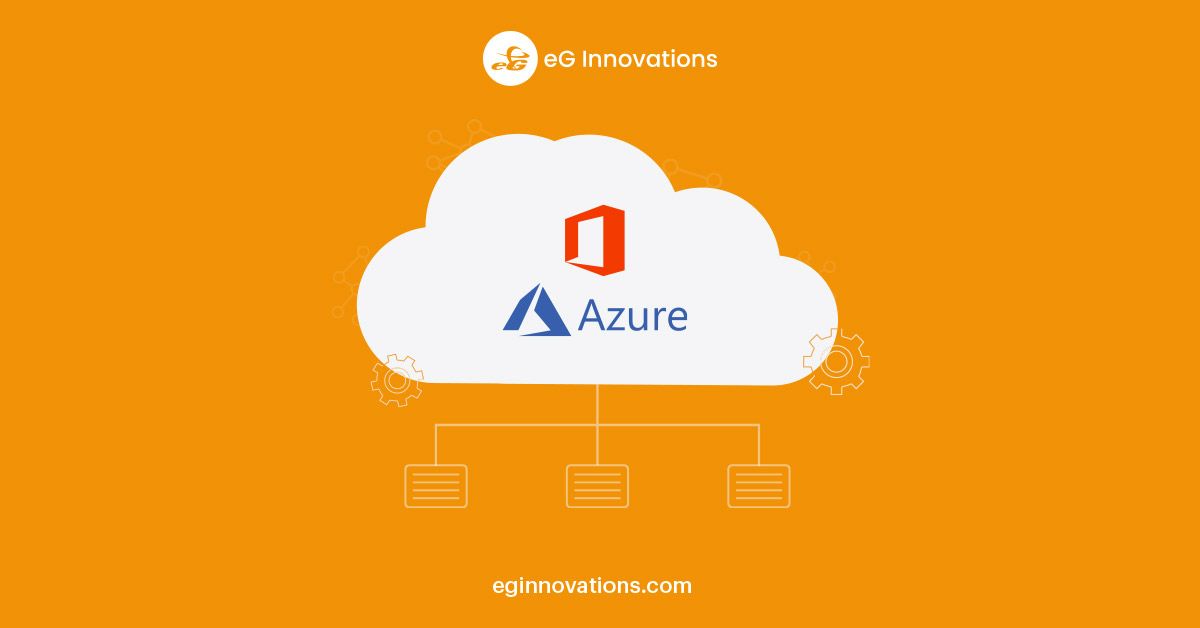
Microsoft Azure
Overview and History
Microsoft Azure, launched in 2010, has rapidly become one of the leading cloud service platforms globally. Initially branded as Windows Azure, it was created to support Microsoft’s own internal infrastructure and services. As the platform began to grow, it evolved, allowing external businesses to take advantage of its robust features. By rebranding to Microsoft Azure in 2014, Microsoft promised a more comprehensive and integrated experience for its users, emphasizing its commitment to cloud computing and enterprise solutions.
Azure’s versatility became evident through its extensive service offerings, appealing to developers, IT professionals, and businesses looking to harness the power of the cloud.
Key Features
Microsoft Azure boasts an array of features designed to meet diverse business needs. Here are some key offerings:
- Hybrid Cloud Capabilities: Azure enables seamless integration of on-premises systems with the cloud, making it ideal for organizations transitioning to a full cloud model.
- AI and Machine Learning: With services like Azure Machine Learning and Cognitive Services, businesses can incorporate AI into their applications.
- Comprehensive Security: Azure provides advanced security features, including Azure Security Center and Active Directory, to protect sensitive data.
These features not only enhance productivity but also foster innovation within organizations.
Case Studies
The effectiveness of Microsoft Azure can be seen through numerous successful implementations across various industries. For instance:
- Adobe: Leveraging Azure for its Creative Cloud, Adobe improved service reliability and scaled effectively to accommodate millions of users.
- BMW: The automotive giant uses Azure for its connected car services, enhancing driver experiences through real-time data analytics.
These examples highlight how Azure supports organizations in achieving their goals, driving efficiencies, and transforming business operations. Through its flexible solutions and robust infrastructure, Microsoft Azure stands out as a powerful option for businesses looking to thrive in the cloud era.
-details.jpg)
Google Cloud Platform (GCP)
Introduction to GCP
Google Cloud Platform (GCP) emerged as a robust contender in the cloud service landscape, officially launching in 2011. Known for its commitment to innovation and efficiency, GCP leverages Google’s vast infrastructure and advanced technologies.
Many businesses are drawn to GCP not just for its comprehensive cloud services but also for how it integrates seamlessly with other Google products. With a strong emphasis on data analytics, machine learning, and artificial intelligence, GCP has positioned itself as a preferred choice for tech-savvy companies looking to stay ahead.
Services and Solutions
GCP offers a wide range of services tailored to different needs, ensuring that organizations can find the right solutions. Some key offerings include:
- Compute Engine: This service allows users to run virtual machines on demand.
- BigQuery: A fully-managed data warehouse for real-time analytics, making it easier to process and analyze large datasets.
- Kubernetes Engine: Facilitates the deployment, management, and scaling of containerized applications.
GCP’s emphasis on data and machine learning makes it an attractive option for businesses focused on harnessing insights and creating predictive models.
Customer Reviews
When it comes to customer satisfaction, GCP generally receives positive feedback. Users often praise:
- Performance: Many report enhanced speed and efficiency in data processing and application hosting.
- Integration: Companies appreciate how seamlessly GCP works with existing Google services, making it easier to adopt.
However, like any platform, it’s not without challenges. Some users have noted the learning curve associated with its extensive features. Overall, GCP stands out as a powerful option for organizations that prioritize innovation and the ability to leverage cutting-edge technology in their cloud solutions.
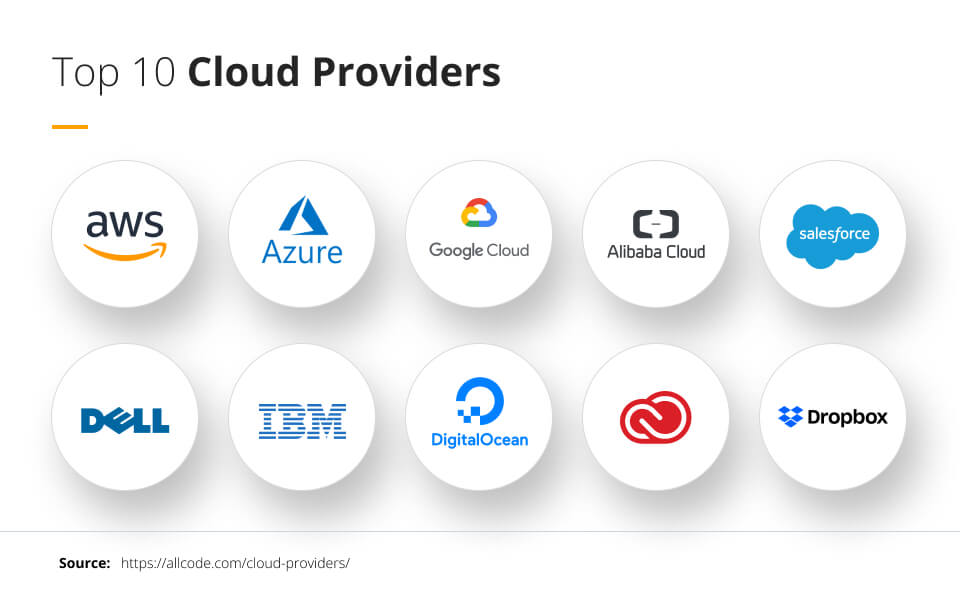
IBM Cloud
Overview of IBM Cloud
IBM Cloud stands out as a significant player in the cloud computing arena, blending decades of enterprise experience with modern cloud technologies. Launched in 2011, it provides a comprehensive suite of cloud services designed to support both traditional and cloud-native applications. Organizations are increasingly leveraging IBM Cloud for its robust infrastructure and deep integration capabilities, particularly in industries that require stringent security and compliance measures, like healthcare and finance.
With a strong focus on hybrid and multi-cloud environments, IBM Cloud allows businesses to operate seamlessly across different cloud infrastructures, ensuring flexibility and resilience.
Unique Features
IBM Cloud offers several unique features that make it attractive to businesses:
- IBM Watson: Integrating AI and machine learning, Watson enhances data analytics and automates decisions, helping organizations leverage their data smarter.
- Kubernetes and Containers: IBM Cloud Kubernetes Service enables easy management of containerized applications, making deployment and scaling simpler for developers.
- Security and Compliance: With built-in security tools, IBM Cloud ensures data protection and regulatory compliance, which is particularly critical for enterprise users.
These features enhance operational efficiency while giving clients access to cutting-edge technology.
Use Cases
IBM Cloud is well-suited for a range of applications, with notable use cases including:
- Financial Services: Banks utilize IBM Cloud for secure data storage and transaction processing, ensuring compliance with regulatory requirements.
- Healthcare: Hospitals and health systems deploy AI-driven analytics to improve patient care and streamline operations.
Through these solutions, IBM demonstrates its commitment to addressing the needs of diverse industries while empowering businesses to innovate and grow confidently in the cloud. Overall, IBM Cloud is a powerful partner for organizations aiming to marry traditional enterprise systems with modern cloud efficiencies.

Oracle Cloud Infrastructure (OCI)
Introduction to OCI
Oracle Cloud Infrastructure (OCI) has been making its mark in the cloud computing landscape since its launch, providing a robust platform for enterprises looking for high-performance computing solutions. Built on a foundation of Oracle’s extensive experience with databases and enterprise applications, OCI is designed to maximize resource efficiency while ensuring exceptional performance. With a focus on enterprise workloads, OCI appeals to organizations that prioritize reliability and scalability, especially those already invested in Oracle’s ecosystem.
It’s particularly appealing for businesses moving to the cloud, offering a seamless integration pathway for Oracle applications while also supporting a diverse range of open-source technologies.
Key Services
OCI offers a wealth of services aimed at catering to comprehensive business needs, including:
- Compute: Bare metal and virtual machines tailored for various workloads.
- Storage: High-performance options like Oracle Cloud Object Storage for flexible and scalable data handling.
- Database Services: The Autonomous Database provides intelligent, self-driving capabilities for optimal performance.
- Networking: Advanced networking features ensure secure and efficient data transfer.
These services create a versatile environment for developers and IT teams alike.
Performance and Reliability
One of OCI’s standout attributes is its focus on performance and reliability. The platform is built on a unique architecture that separates storage and computing, enhancing speed and reducing latency. Additionally, Oracle implements a Service Level Agreement (SLA) that guarantees up to 99.995% availability, reassuring businesses about their data’s integrity and accessibility.
Users often report experiencing faster data processing and application performance than traditional hosting solutions. With robust security protocols and consistent performance, OCI proves to be a dependable cloud partner for enterprises looking to leverage the power of the cloud while maintaining high operational standards. Overall, Oracle Cloud Infrastructure stands out as a firm contender in the cloud space, particularly for businesses with critical data and application needs.

Alibaba Cloud
Background and Growth
Alibaba Cloud, officially known as Alibaba Cloud Computing, was launched in 2009 as a subsidiary of Alibaba Group. Initially designed to support the operations of Alibaba’s e-commerce platforms, it quickly recognized the potential for offering cloud solutions to a broader audience. Over the years, Alibaba Cloud has experienced remarkable growth, becoming the leading cloud service provider in Asia and one of the top players globally.
Its success can be attributed to the backing of the Alibaba ecosystem, which includes a vast user base and integrated services. As businesses around the world began to adopt cloud technology, Alibaba Cloud positioned itself as a pivotal player, emphasizing scalability and adaptability.
Services and Products
Alibaba Cloud offers a comprehensive suite of services aimed at various business needs, including:
- Elastic Compute Service (ECS): Virtual servers that provide flexible and scalable computing resources.
- ApsaraDB: A range of database services, including relational, NoSQL, and in-memory database options.
- Big Data Solutions: Tools like MaxCompute and DataV help businesses analyze and visualize large datasets effectively.
- Artificial Intelligence: Services that enable developers to integrate AI capabilities into applications seamlessly.
These offerings enable businesses to innovate while leveraging powerful cloud infrastructure.
Global Expansion
In recent years, Alibaba Cloud has aggressively pursued global expansion, establishing data centers in regions like North America, Europe, and the Asia-Pacific. This expansion allows the company to serve a diverse client base and respond to growing demand for cloud services worldwide.
With strategic partnerships and investments, Alibaba Cloud continues to strengthen its presence on the global stage. The focus on addressing the specific needs of different markets, combined with robust service offerings, positions Alibaba Cloud as a strong contender for businesses looking to venture into the cloud. As it grows, Alibaba Cloud exemplifies a commitment to innovation, fostering transformative business solutions across the globe.

Salesforce
Overview of Salesforce Cloud
Salesforce is a powerhouse in the world of cloud solutions, particularly renowned for its customer relationship management (CRM) services. Launched in 1999, Salesforce pioneered the concept of delivering software as a service (SaaS), allowing companies to manage customer relationships through the cloud seamlessly. Over the years, Salesforce has expanded its product lineup beyond CRM to include analytics, artificial intelligence (AI), and application development tools, making it a comprehensive platform for businesses looking to enhance customer engagement and streamline operations.
Users across various industries appreciate its user-friendly interface and the ability to access real-time data from anywhere, which is essential in today’s fast-paced business environment.
CRM Solutions
At the heart of Salesforce’s offerings lies its robust CRM solutions. These tools empower organizations to effectively manage their customer interactions and relationships. Key features include:
- Lead and Opportunity Management: Helps sales teams track potential customers and sales opportunities.
- Sales Forecasting: Provides insights that enable teams to predict performance and make informed decisions.
- Customer Service Solutions: Tools like Service Cloud enhance support processes, ensuring improved customer satisfaction.
These features enable businesses to build stronger relationships by understanding customer needs better.
Integration Capabilities
One of Salesforce’s standout qualities is its impressive integration capabilities. The platform can connect with numerous third-party applications, fostering an interconnected ecosystem. For example:
- AppExchange: A marketplace filled with thousands of applications that integrate seamlessly with Salesforce.
- APIs: Robust APIs allow businesses to customize and enhance their Salesforce experience by connecting it to their existing systems.
These integration capabilities enable businesses to create a tailored CRM solution that fits their unique workflows. With Salesforce, companies can not only enhance their customer relationships but also create a cohesive digital environment that drives efficiency and growth. Overall, Salesforce is more than just a CRM; it’s a complete ecosystem for businesses striving for better customer engagement and operational excellence.

VMware Cloud
Introduction to VMware Cloud
VMware Cloud has emerged as a leading solution for organizations looking to transition their virtual machines to the cloud. Established by VMware, a company known for pioneering virtualization technology, VMware Cloud enables businesses to deploy and manage applications across various cloud environments seamlessly. By leveraging VMware’s robust virtualization capabilities, companies can utilize their existing infrastructure while gaining the flexibility and scalability of cloud computing.
The ability to easily migrate on-premises workloads to the cloud without drastic changes in architecture makes VMware Cloud particularly appealing for enterprises looking to optimize their workloads.
Features and Benefits
VMware Cloud boasts a suite of features that deliver significant benefits to organizations. Key highlights include:
- Hybrid Cloud Management: Integrates public and private clouds, allowing organizations to manage all workloads through a single platform.
- High Availability: Ensures that applications remain accessible with minimal downtime.
- Enhanced Security: Built-in security features protect sensitive data across cloud environments.
- Resource Optimization: Tools like Cloud Health provide visibility into resource consumption and performance.
These features enable businesses to streamline operations, reduce costs, and enhance their agility in responding to market changes.
Customer Success Stories
Numerous organizations have successfully harnessed VMware Cloud to transform their operations. For instance:
- BMW: By adopting VMware Cloud, BMW improved its IT infrastructure, enabling faster deployment of applications and better scalability. This transformation has optimized their development workflows and accelerated innovation.
- Coca-Cola: The beverage giant utilized VMware’s solutions to modernize its application workloads, resulting in improved performance and efficiency in operations across its global supply chain.
These success stories illustrate how VMware Cloud empowers organizations to enhance their cloud strategies, drive efficiency, and achieve operational excellence. With its powerful features and proven benefits, VMware Cloud is a compelling choice for businesses ready to embrace the future of cloud computing.

Conclusion
Summary of Top Cloud Service Providers
Throughout this exploration of cloud service providers, it’s clear that each platform offers unique strengths and capabilities tailored to various business needs. Amazon Web Services (AWS) leads with comprehensive features and scalability, while Microsoft Azure excels in integration and hybrid solutions. Google Cloud Platform (GCP) shines with its data analytics and machine learning tools, and IBM Cloud provides a strong focus on enterprise applications and security.
Oracle Cloud Infrastructure (OCI) stands out for its performance, particularly concerning database management. Alibaba Cloud is rapidly expanding its global presence, delivering robust services in Asia and beyond. Salesforce continues to dominate the CRM space, ensuring seamless customer relationship management, and VMware Cloud offers unmatched virtualization capabilities for enterprises.
Considerations for Choosing a Provider
When selecting the right cloud service provider, consider the following factors:
- Business Needs: Determine which features align best with your organization’s goals and workflows.
- Budget: Evaluate pricing models and potential long-term costs to find a provider that fits your budget.
- Support and Security: Look for robust customer support and strong security measures to protect your data.
Taking the time to thoroughly assess these aspects can greatly impact your business’s efficiency and growth. Ultimately, investing in the right cloud provider can empower your organization to innovate, streamline operations, and drive success in an increasingly competitive market. By aligning your cloud strategy with the right provider, you can create a solid foundation for digital transformation.
